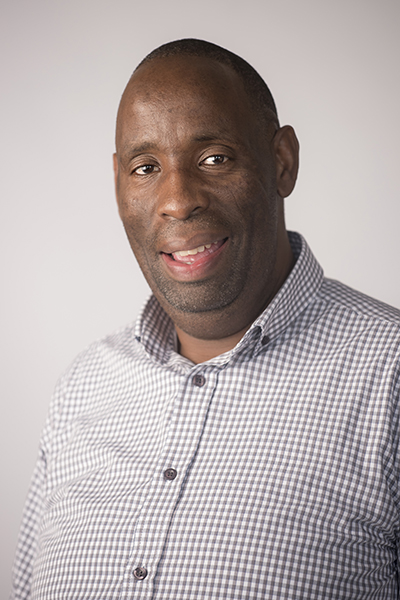Latest News Archive
Please select Category, Year, and then Month to display items
12 January 2024
|
Story Nonsindiswe Qwabe
|
Photo Sonia Small
 Since joining the UFS in 2008, Dr Grey Magaiza has worked extensively on approaches that can foster the socio-economic transformation of societies.
Since joining the UFS in 2008, Dr Grey Magaiza has worked extensively on approaches that can foster the socio-economic transformation of societies.
“The future should be one where communities can decide on their development agenda and futures. That’s the most important for me.” Dr Grey Magaiza, Deputy Director of the Centre for Gender and Africa Studies (CGAS) and Head of the Community Development programme on the Qwaqwa Campus, is passionate about capacitating communities to be agents of change and advancement. His vision for the future emphasises the empowerment of communities to take charge of their development by actively participating in decision making and the implementation of development projects that can improve their lives.
Since joining the UFS in 2008, Dr Magaiza has worked extensively on approaches that can foster the socio-economic transformation of societies. Over the years, he has crafted his research speciality into one that he is most proud of – being an interdisciplinary scientist immersed in the development of communities.
“I’m in a fortunate position of researching what I like. I say ‘fortunate’, because I’ve taken the time to understand what I’m passionate about, which is the overall field of rural livelihoods and livelihood futures – in short, community development. My research starts from an engaged university, understanding the elements that a university must use to enhance transformation and relevance to its immediate community in terms of development.”
One of the ways he has done this is by looking at social entrepreneurship as a development approach for young people in a rural setting. Through workshops with non-profit and civic organisations in Qwaqwa, Dr Magaiza has been helping these organisations to map out their needs and actively meet them through the involvement and support of external role players.
“We understand that communities are part of the national development agenda, but even that national agenda respects community knowledge and intentions and allows communities to shape their identity. A critical enabler of this is community organising. You bring back the capacity in communities to have dialogues on issues affecting them as spaces for engagement, knowledge exchange, and for people to just talk about their way forward.”
By enabling communities to define their development agenda, they can address their specific needs, challenges, and aspirations, he said. “When I look at livelihood futures, it’s quite an exciting aspect of my work – it’s like looking into a fortune tellers’ globe, because you’re not deciding for communities what they should do, but the communities themselves take those decisions.”
Chitja Twala: leading ANC historian
2017-12-25

Dr Chitja Twala is a leading historian on ANC history in the
Free State. Photo: Sonia Small
Dr Chitja Twala is a senior lecturer in the Department of History at the University of the Free State (UFS), Bloemfontein Campus. Dr Twala has a substantial publication record on the history of the liberation movements, with special reference to the African National Congress in the Free State. He is the author of six chapters and has co-authored two in The Road to Democracy in South Africa: Vol. 4 (1970-1990) and The Road to Democracy in South Africa: Vol. 6 (1990-1996), published in 2010 and 2013 respectively. Dr Twala has a PhD in History from the UFS.
Dr Twala was part of the first group of the UFS Vice-Chancellor’s Prestige Scholars Programme (PSP). He is currently collaborating with Prof Peter Limb from the Michigan State University in the United States of America on a book project on the history of the ANC in the Free State. He has published numerous peer-reviewed articles in local and international journals. He serves on the editorial boards of the Journal for Contemporary History, Yesterday and Today Journal, and South African Journal of Cultural Studies.
Awards received by Dr Twala:
The National Research Foundation
New frontier in Poverty Reduction and Sustainable Development Funding
Recipient of the Graduate School for Arts and Sciences at the University of Harvard
US Recipient of the National Institute for the Humanities and Social Sciences Grant
Awarded the Mellon Foundation Scholarship 2016-2018